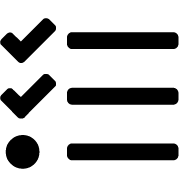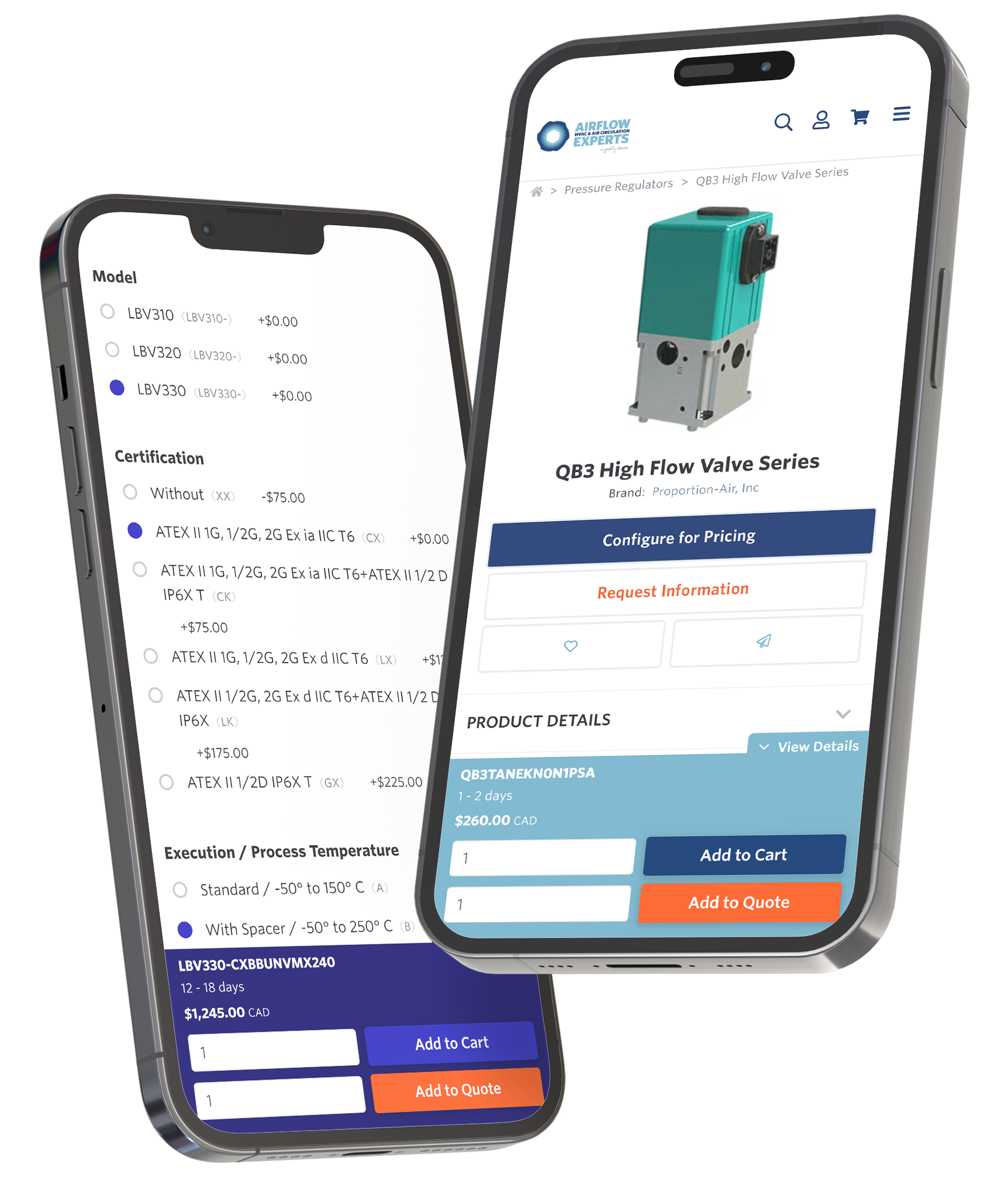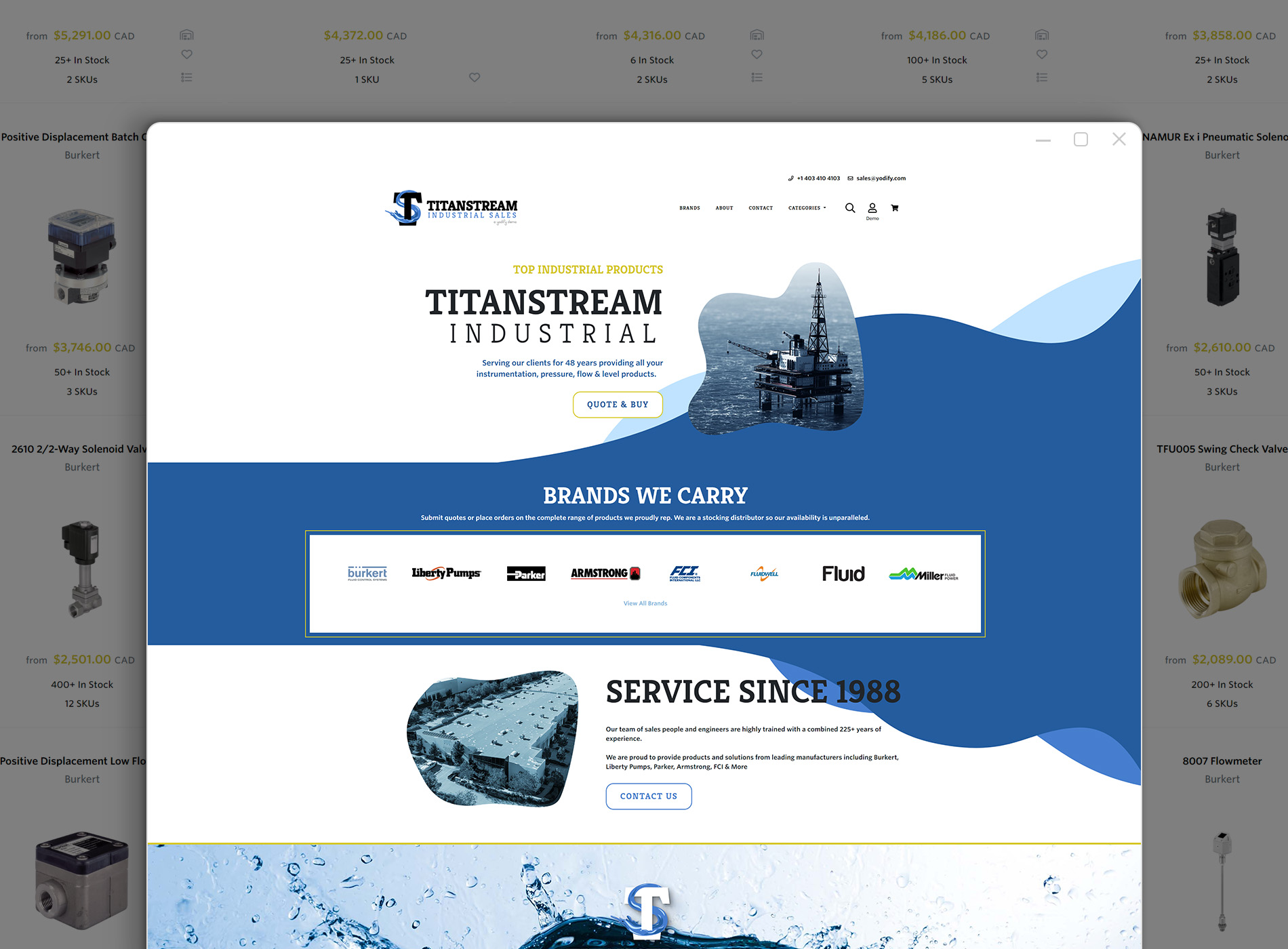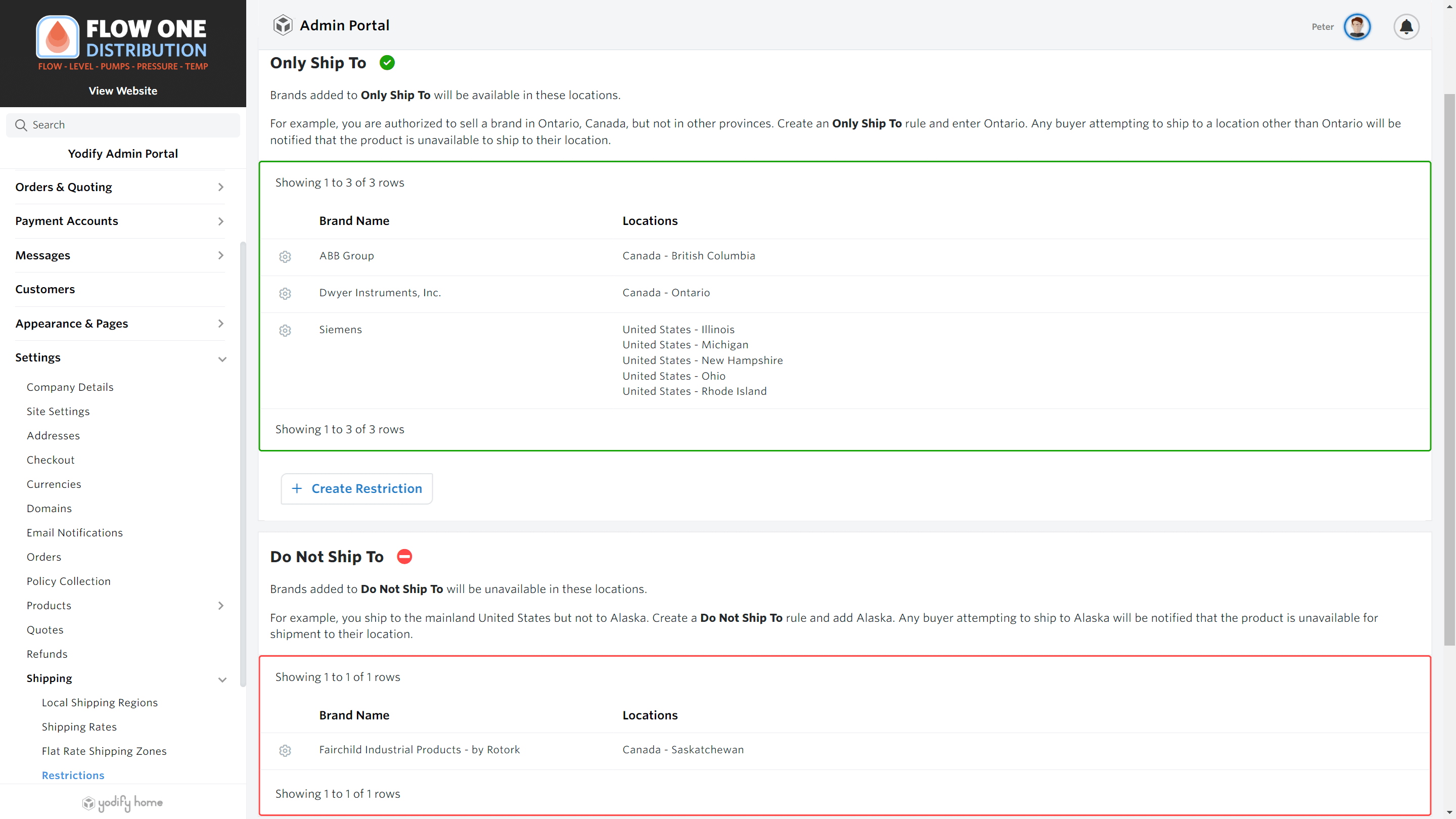be everywhere you need to be
Online Catalogs & Stores for Sales Teams & Customers 24/7/365

engage your customers
Product Configurators
Yodify's configurators engage and empower your customers to spec products based on their application requirements.
With Yodify configurators, you can build in product restrictions, dependencies & more to make sure only real SKUs can be created. Add pricing and lead times to your configurator options for complete CPQ functionality.
Built-in logic rules mirror the expertise of application engineers, providing only possible combinations of materials, sensors, outputs, certifications, etc.
read moreWith Yodify configurators, you can build in product restrictions, dependencies & more to make sure only real SKUs can be created. Add pricing and lead times to your configurator options for complete CPQ functionality.
Built-in logic rules mirror the expertise of application engineers, providing only possible combinations of materials, sensors, outputs, certifications, etc.

customer-specific pricing
Account Pricing & Net Terms
For seamless online sales & quoting for your customers with special pricing and payment terms, simply attach their account and brand-specific discount levels so they can shop, self-quote, and buy online with the pricing and payment terms you've already tailored for them.
For merchants with multiple brands, unique brand-specific discounts can be assigned to each customer.
Personalized to your customers requirements.
read moreFor merchants with multiple brands, unique brand-specific discounts can be assigned to each customer.
Personalized to your customers requirements.

curate your customer journey
Custom Product & Price Visibility
Pricing & Product Visibility Controls let you curate your catalog to show only what you want to who you want.
Apply brand-level controls, or get granular and manage your content on a product-by-product basis to control who sees specific products.
Tailor and refine your customers journey with Show or Hide Prices from All Customers, Show Prices Only to Logged In Customers, Show Prices to Only Customers with a Payment Account, Hide Prices in Restricted Shipping Regions, and Inherit Price Visibility from a Brand and any combination thereof.
read moreApply brand-level controls, or get granular and manage your content on a product-by-product basis to control who sees specific products.
Tailor and refine your customers journey with Show or Hide Prices from All Customers, Show Prices Only to Logged In Customers, Show Prices to Only Customers with a Payment Account, Hide Prices in Restricted Shipping Regions, and Inherit Price Visibility from a Brand and any combination thereof.
Love your website.
Book Your Demo Now

book a demo
Skip the Reading
Book a 30-minute demo, and we'll walk you through the solutions Yodify can provide your business.
Book Your Platform Demo





